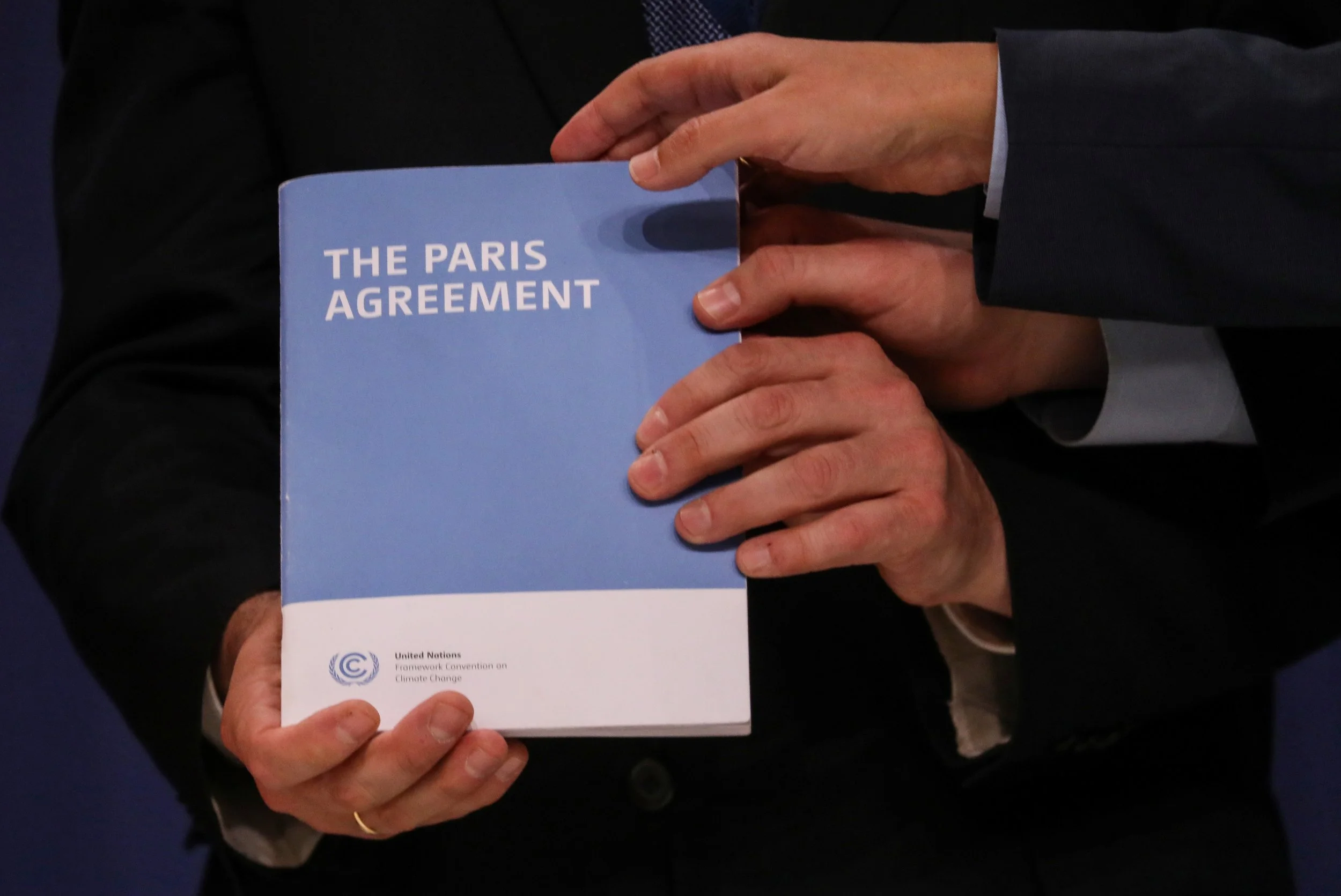Standing up for the Paris Agreement
The Paris Agreement is once again becoming a hot-button political issue in New Zealand, with concerning calls from two parties in our governing coalition for use to consider pulling out of Paris. In this article, we set out why it’s so critical that NZ remain a party to the Paris Agreement. But it’s not enough to merely be a member of Paris and pay lip-service to our Paris commitments. We have to up our game and take our commitments seriously, and Lawyers for Climate Action remains concerned that New Zealand isn’t doing enough.
Staying in Paris - why it matters
It’s critical that New Zealand stays in the Paris Agreement - and we’re pleased to see the Prime Minister agree.
Over the last day, reported by RNZ, the ACT Party called on New Zealand to leave the Paris Agreement. But the Prime Minister responded, saying it would “damage and punish and hurt our farmers”. The Prime Minister is right.
It’s wrong to think of our climate change commitments as just costs. They should be recognised as investments - helping NZ lead in clean energy, green infrastructure, cheaper and cleaner transport, and international competitiveness. In the words of Mariana Mazzucato, our climate targets are “not just climate pledges; they are strategic economic roadmaps” in a time when a changing climate presents compounding risks.
That’s especially the case for NZ, which is reliant on our exports and clean green reputation. If NZ pulled out Paris:
We would join the US as the only country in the world to pull out.
It would be an obvious breach of our Free Trade Agreements with the EU and the UK - opening us up to significant risk of trade sanctions.
It wouldn't change the need to reduce emissions and adapt to climate change - climate change still presents huge risks. The NZ Treasury has estimated that climate inaction could cost billions of dollars in the coming decades.
It would place our exporters in a difficult position, as many large international buyers would continue requiring NZ exporters to meet Paris-consistent targets, regardless of what our Government does.
Our international climate obligations also wouldn't go anywhere. The ICJ last month confirmed that all countries around the world have obligations to reduce emissions and protect the climate system - whether or not they are a party to Paris.
What does meeting Paris require?
Merely continuing to be a member of Paris is not enough. Rather, as the ICJ recently confirmed, the Paris Agreement imposes binding due diligence obligations on states to take steps to reduce harm to the planet. Parties have to set climate targets (known as Nationally Determined Contributions) that:
make a credible contribution to the “primary” 1.5°C temperature goal;
reflect a country’s highest possible ambition; and
are progressive - i.e., they ratchet up in terms of ambition.
And not only are parties required to set Nationally Determined Contributions, the ICJ made clear that states must “do the utmost” and “exercise best efforts” to intend to meet them.
How is NZ stacking up?
We were alarmed last week when the Australian Government announced its new Paris Agreement target: a 62-70% cut below 2005 levels by 2035 (building on their current 43% reduction by 2030).
In January, the New Zealand Government announced its NDC2: a net 51-55% reduction below 2005 gross levels by 2035 (‘building’ on our 2030 target of a 50% net reduction below 2005 gross levels).
While there are questions about whether both Australia's and New Zealand’s targets meet the requirements of the Paris Agreement , the message for the New Zealand Government is clear: Australia has just set a more ambitious climate target than New Zealand.
For a country that relies so heavily on our ‘clean green’ reputation, this should be a wake-up call for the NZ Government. The climate does not care about our clever accounting choices; it cares about actual reductions in emissions.
In our view, New Zealand needs to reconsider its NDC2 - especially in light of the ICJ's Advisory Opinion. Our NDC needs to be genuinely progressive, reflect our highest possible ambition, and set us up to take advantage of the opportunities that come with real climate leadership.

